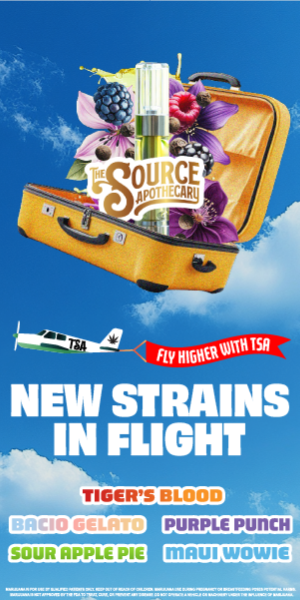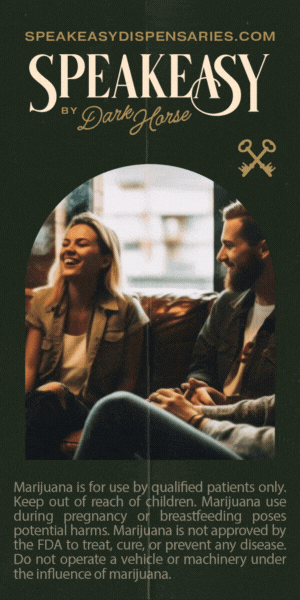Vetting medical marijuana
Benefits of treating PTSD.
By Jessica Maxwell

Combating medical conditions with cannabis remains a somewhat divisive topic in The Natural State. This is likely due to a lack of research on the topic, as cannabis has only recently moved into public discourse from beyond the fringes of counterculture. In Arkansas, for a patient to be deemed eligible for a medical marijuana “registry identification card” they must be formally diagnosed by a physician with a “qualifying medical condition.” Of the 12 conditions listed in Amendment 98, there is only one relating to mental health: post traumatic stress disorder (PTSD).
One demographic commonly associated with PTSD is veterans — specifically — those who have seen combat. PTSD is characterized by the result of either firsthand exposure or the witnessing of actual or threatened death, serious injury or sexual violation. Diagnosing PTSD is no simple task as it comes with a host of varying degrees of symptoms ranging from depression to reckless behavior and sleep disruption. Coupled with the lingering stigma of using marijuana medicinally, treating PTSD is far from simple.
Thankfully, there are individuals in Central Arkansas working hard to help veterans and civilians alike find relief through the responsible use of cannabis. Matthew Dedman, chief operating officer of Natural State Medicinals, is passionate about providing quality products to those who need them most. His own military background and experience with PTSD allow him a unique perspective on the industry in Arkansas. Similarly, Angela Campagna, MSW, LCSW, combats the stigma as a certified clinical trauma professional in Conway. Her company, Face2Face Therapy, follows a mission to diagnose assessments for PTSD, particularly within the veteran community.
Despite the lack of research, it is hard to dispute the countless success stories Campagna witnesses when her patients follow a treatment plan that includes the therapeutic use of marijuana. She explained that very soon after her patients begin using marijuana, they note fewer mood swings, less irritability and decreased instances of sleep disturbances. She explained that the most important thing about cannabis use in patients with PTSD is the calming of the nervous system. “When you have PTSD, your central nervous system is constantly in overdrive, and to even begin the process of treating [it], you have to be in a relaxed state of mind and body,” she said. “[Cannabis] immediately calms down the central nervous system.”
Both Campagna and Dedman were eager to point out the lack of treatment options for PTSD and its related symptoms. They both also noted that patients who suffer from PTSD might also suffer from chronic pain. Most of the available medical prospects come with life-altering side effects such as weight gain, impotence or sleep disturbance. In fact, harsher drugs are often prescribed, as Dedman stated, “A trip to the VA means one thing sometimes — opioids.” Yet another common issue veterans suffering from PTSD experience is alcohol abuse — as they self-medicate. This brings a whole slew of well-documented and detrimental side effects.

Marijuana offers a more holistic approach to treating PTSD and has the benefit of easing pain without becoming addictive when used responsibly. One myth among the community, however, is that marijuana use can exacerbate the symptoms of PTSD, potentially causing a patient to return to negative thoughts or memories. Campagna agreed there is the possibility this might occur, but it might not necessarily be a bad thing. “When the body is in a relaxed state, the patient has the potential to better process their memory,” she explained. Alternatively, cannabis has the propensity to clear your mind, as Dedman added, “Sometimes forgetting I’m a veteran is the best medicine.”
While navigating the world of medical marijuana can be overwhelming, it doesn’t have to be a solo journey. Campagna believes in what she calls the “treatment team model.” This three-tiered approach involves a therapist, a medical doctor and a budtender. The three together provide regular therapy assessments and sessions, physical health assessments, and the exploration of different cannabis strains to determine what really works for each individual person. In today’s world, there are countless cannabis strains and ways to consume them. Often what works for one person might not work for another.
Both Dedman and Campagna emphasized that just like anything else, there is a breaking point. Because doctors cannot legally dose marijuana for a patient, it is up to each individual to responsibly experiment and figure out how much works best for them, Campagna explained. Overall, she noted the importance of being open-minded and willing to try different things. She encourages journaling as well as logging the effects of the different strains and products you try. For those who don’t feel like writing it out, there’s an app for that. Campagna is a fan of Leafly, which was created to help patients research and compare different strains based on crowd-sourced reviews.
Ultimately, there is no one-size-fits-all when it comes to using cannabis, and with constant new developments and innovations in the industry, it can be overwhelming to get started. On the flipside, the industry is also highly regulated — particularly in Arkansas, meaning there is little room for error. The individuals who fuel the cannabis scene across The Natural State take their livelihoods and the safety of everyone very seriously.
There should be no holds barred when it comes to finding something that works for a patient who is suffering from PTSD. Campagna stated that it can be a struggle to get other professionals in her field on board with talking to their patients about the therapeutic use of marijuana and its benefits. It’s time that we move beyond the stigma and work toward helping patients succeed with cannabis and “forge a path to peace.”



